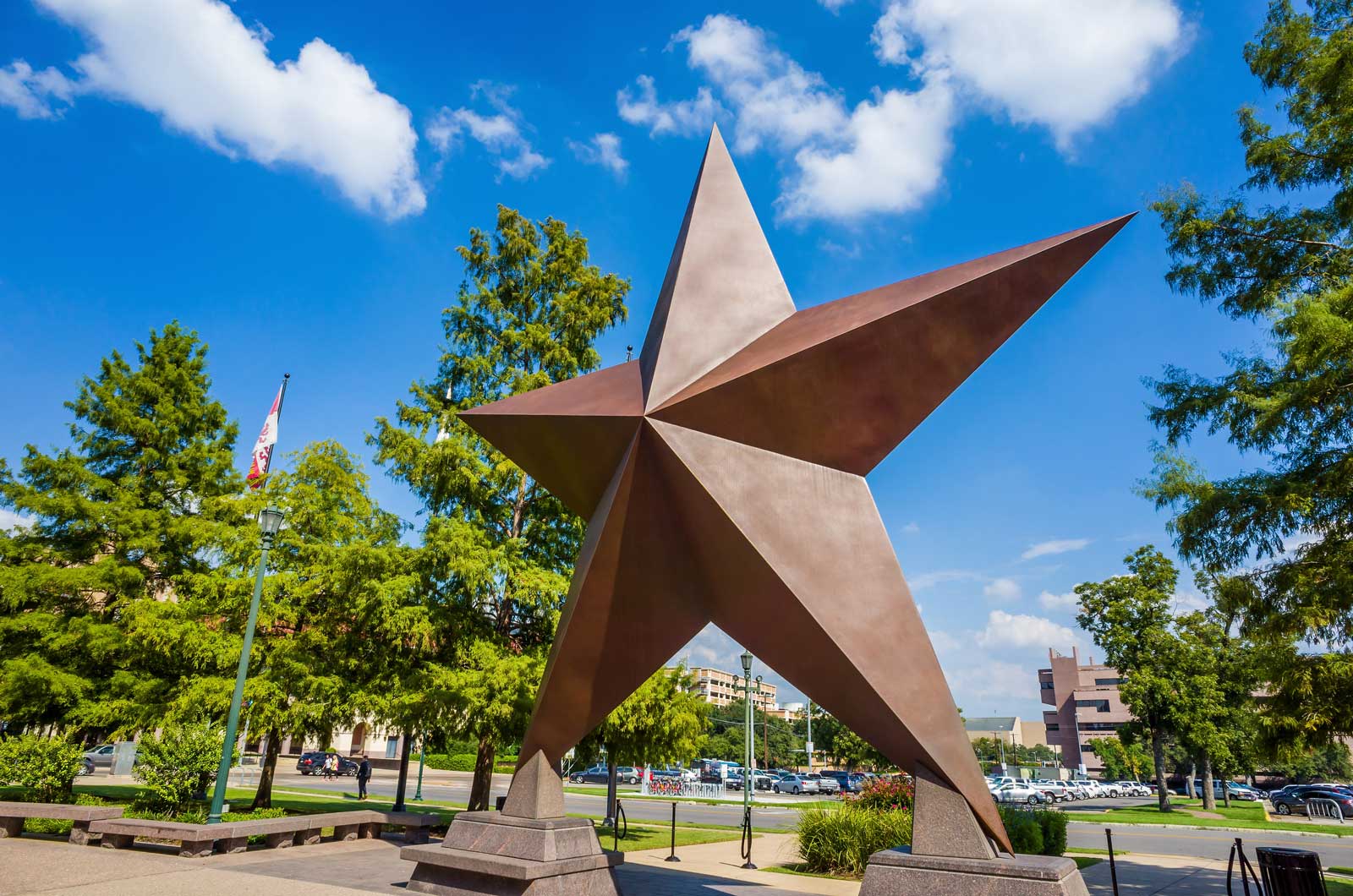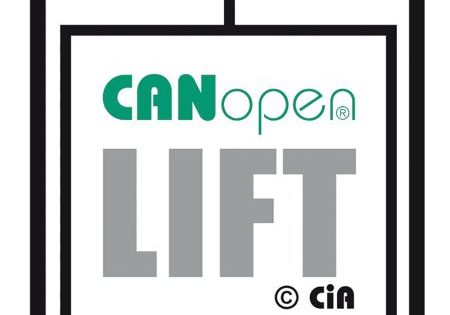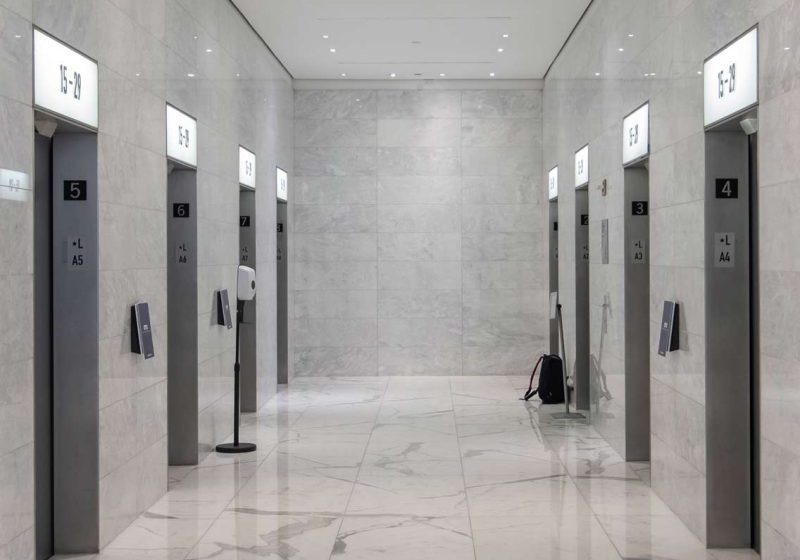With safety as a constant guide, RICO Elevators grows and meets challenges with a focus on heavy industry.
Receiving the Award of Safety Excellence 2022 from Texas Mutual Insurance Co. came as no surprise to RICO Elevators, Inc. (Texas’ RICO Elevators Earns State Safety Award), headquartered in Dickinson, Texas, approximately 30 mi. southeast of Houston. That’s because ever since Mark and Lana Fehrle founded RICO — an acronym for its four main business areas, Residential, Industrial, Commercial and Offshore — in Houston just over 20 years ago, safety has been a cornerstone of the company. “With RICO, safety is everything,” RICO Vice President (VP) Nick Austin says. “What I have learned in my experience is that the key to a successful business is keeping your employees safe, healthy and well-trained.” Once those things are accomplished, he observes, “growth and profits follow.”
RICO President Mark Fehrle and Chief Financial Officer Lana Fehrle launched RICO after Mark’s nearly 24-year career as a service technician and 12 years with rack-and-pinion industrial hoist specialist Alimak Hek in the Houston area. He wanted to run a company that prioritized service and response times. The Fehrles started bidding on (and winning) jobs as they became available throughout Texas. Power plants and port authorities made up the initial customer base, but it has since expanded to include homeowners, office property owners and operators of oil rigs, ships and barges. RICO provides elevator repair, modernization and preventive maintenance to these entities, and expanded its residential customer base with a partnership with Fox Valley ElevatorTM a few years ago.
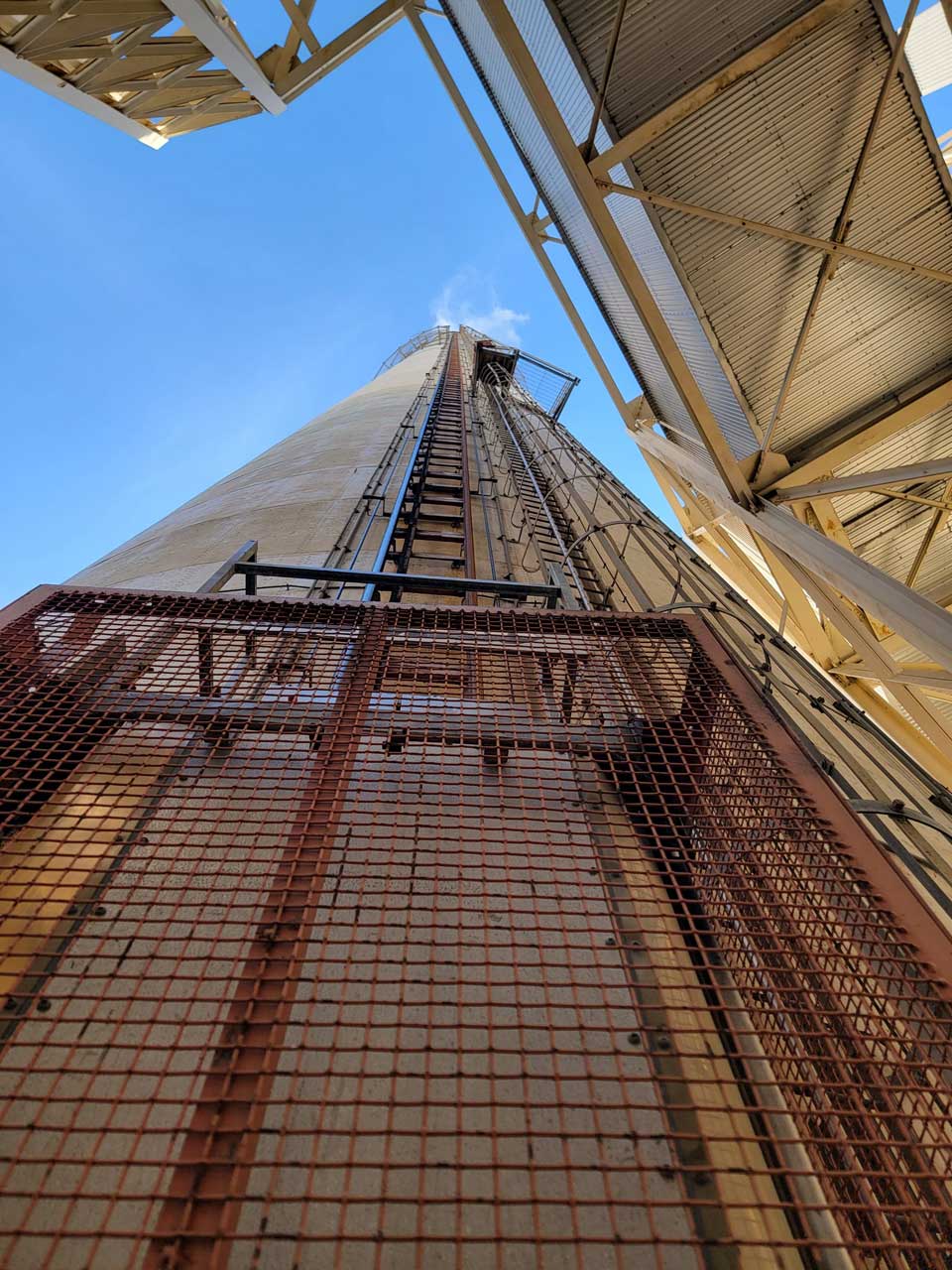
After its founding, RICO quickly outgrew its 2,000-ft2 space in Houston, relocating to the current 6,500-ft2 building in Dickinson within two years. In 2011, the company opened an additional office in central Texas to both grow its customer base and enhance its ability to provide timely service to existing customers. The lion’s share of RICO’s customers is within its industrial division that includes power plants, bridges, dams, refineries, chemical plants, mines, ports, research facilities and other private industrial entities. Between the two offices, the company employs 10 service technicians and seven office personnel.
As RICO continues to grow and add customers, the need for additional employees persists, and recruiting manpower remains its biggest challenge. “Of course, the high cost of insurance cannot be disregarded, but our safety record has helped tremendously in managing these costs and keeping those premiums within reason,” Mark Fehrle says. To help ensure RICO’s culture of safety remains strong, the company prefers to hire and train new technicians “from scratch,” Mark Fehrle says. He is also big on communication and organization.
Office Manager Brandon Toole says RICO goes above and beyond in terms of safety, stating:
“No. 1 is communication, and that’s for personnel across the board. We have Monday morning meetings in which a supervisor leads a discussion about a specific safety topic. But, more importantly, there is always an open discussion among all parties at the meeting about anything that was seen or encountered in the previous week or even a facility-specific risk and how it can be mitigated.
“We work in facilities with sometimes hundreds of different contractors working at the same time. We have taken procedures from these facilities and applied them across the board at all work locations. Tasks such as work permits, entry logs and job safety analysis reports are a common element to any RICO worksite.”
Another key to safety, Toole says, is Mark Fehrle’s “open door” policy. Every employee has his personal cell phone number. Mark Fehrle also believes in never asking another employee to do something he would not do himself. This could be, for example, asking a single employee to perform work that would be safer and more efficient if performed by two. “It also comes down to accountability,” Toole says, continuing:
“Every person in the company holds each other accountable for their actions. This is something that was taken out of the [Mine Safety and Health Administration] playbook. Safety starts and stops with you. [Nick Austin] says that, as VP, knowing that ownership cares more about the safety of their employees than the profit of the company changes the outlook of every employee that comes to work for RICO Elevators.”
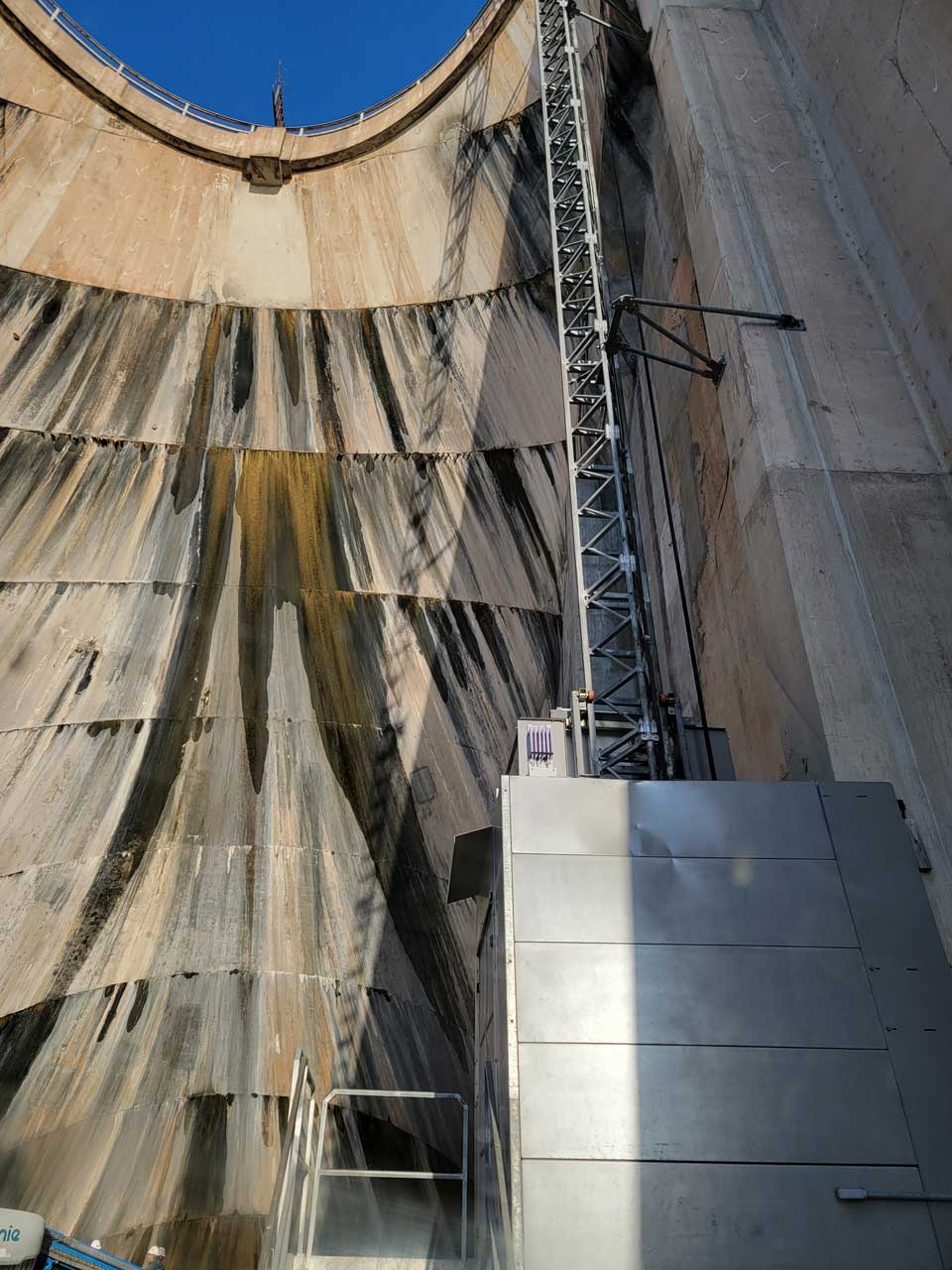
A key member of the RICO team, Austin joined the company 17 years ago after spending more than five years working for an elevator OEM on elevators in South Africa, the Middle East and all over North America. He has been involved in manufacturing, testing and erecting elevators all over the globe. Austin says:
“I had the opportunity to work for an elevator manufacturer that specialized in building unique elevator systems for mostly harsh environments. In doing this, I was able to lead a team overseas for several months at a time for several different projects. Over the years, I had a chance to see and work on specialized equipment that mostly had never been installed before in those particular environments. This forced me to think outside the box, and also to be ever-reminded of the many different factors that keep myself and those around me safe.”
Weathering the Pandemic
Thanks in part to its large industrial client base, the COVID-19 pandemic had little negative effect on business. Like everyone else, RICO had to deal with supply chain issues that delayed delivery of parts and equipment. This situation, Mark Fehrle says, is starting to improve. Ironically, the company feels grateful for pandemic-related social distancing forcing it to come up with more innovative ways to communicate with employees and customers. New, paperless initiatives and systems have helped RICO enjoy “extraordinary growth in the post-COVID world we now inhabit.”
The company communicates with its customers much more efficiently thanks to a new online portal. “Pairing this innovative technology with the use of vehicle GPS units has allowed RICO to be as efficient as possible in scheduling, even re-routing our technicians when customers have emergency elevator needs,” RICO Service Manager Dustin Via says. Customers can now see any service that is performed on-site, and RICO is working to allow customers to see parts that have been replaced, as well as other analytical data such as when safety tests are scheduled or due to be performed.
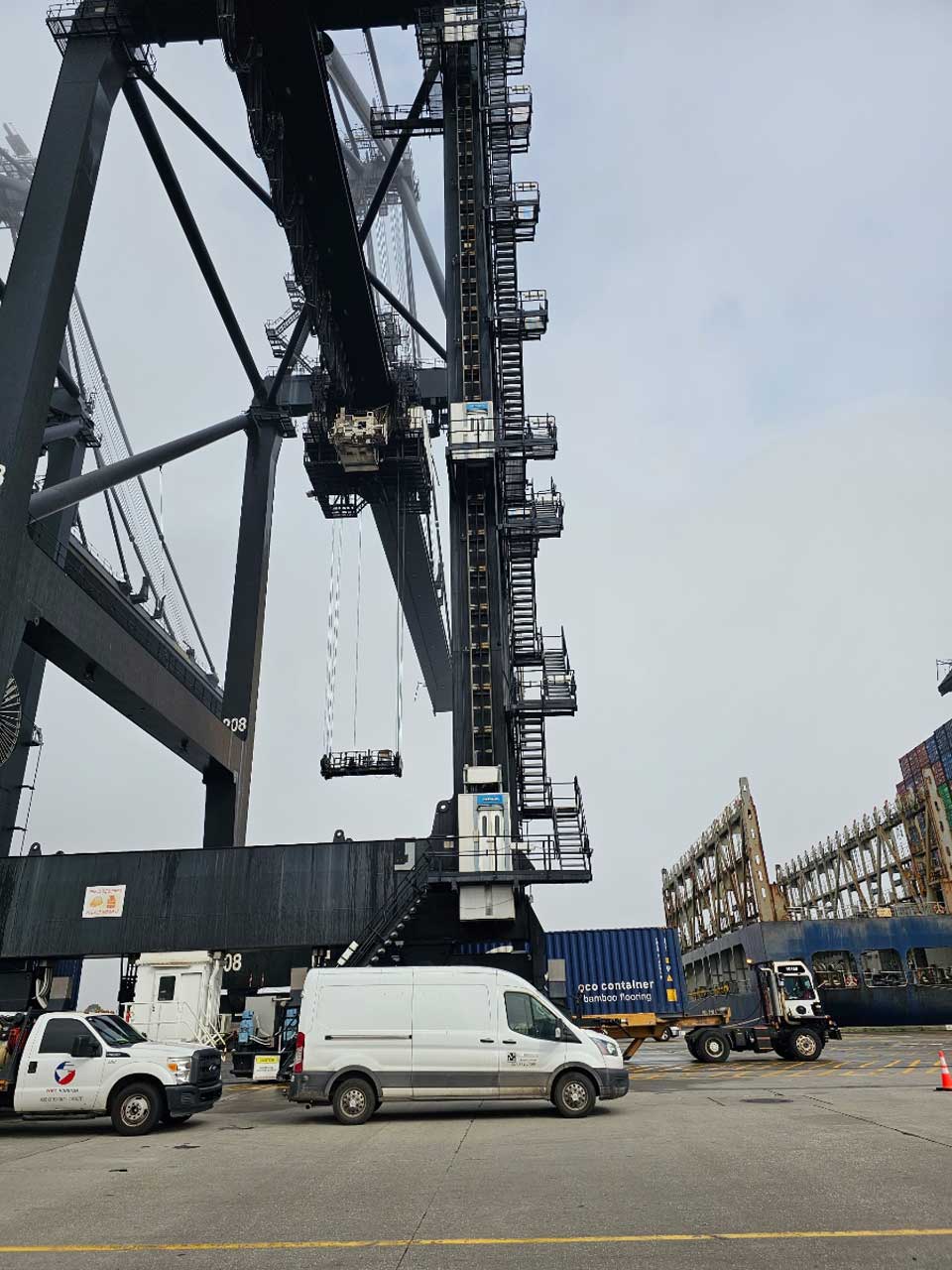
New, paperless initiatives and systems have helped RICO enjoy extraordinary growth in the post-COVID world we now inhabit.
Family and Local Community
A family atmosphere is pervasive at RICO. “Celebrating employees’ birthdays, hosting annual employee crawfish boils and putting on an annual RICO Christmas party are just a few of the ways the management team enjoys providing for its employees,” Toole says. RICO also gives back to the local community. It donates annually to the Dickinson High School football calendar fundraiser, purchases cases of Girl Scout cookies, donates essential education supplies to local school districts and has contributed to Shriners Hospitals for Children for 18 years running. The company has sent local athletes to sports camps and invested in entities including area sheriffs departments, the Texas Parks and Wildlife Department, rehabilitation services and military veteran help programs. It has even provided training to local fire departments free of charge to better prepare them for elevator emergencies. Its most recent effort is to support the Great Blue Heron Statues project, created to educate young people about the local environment and the preservation of Dickinson Bayou.

What’s Next: Supertalls and Orbital Platforms?
So, what’s next for RICO Elevators? Other than continued growth, Mark Fehrle is developing a new type of traction elevator drive system. It is a machine-room-less system that can overcome the limited rise currently available with other traction drive machines and can reach heights of well over 2,500 ft. “This would allow the Burj Khalifa and other supertall buildings to have express elevators from the ground level to penthouses on the top floors without the need to change elevators,” Mark Fehrle says. The system can also be used in low- or zero-gravity applications, allowing multilevel transportation on future space stations such as Gateway Spaceport — an effort first formed in 2012 to build the first rotating spaceport and space hotel.[1] “This station will need a transportation system to move personnel and freight from the docking station to the inner and outer rings,” Fehrle says. “RICO is working on a solution.”
Reference
Get more of Elevator World. Sign up for our free e-newsletter.
